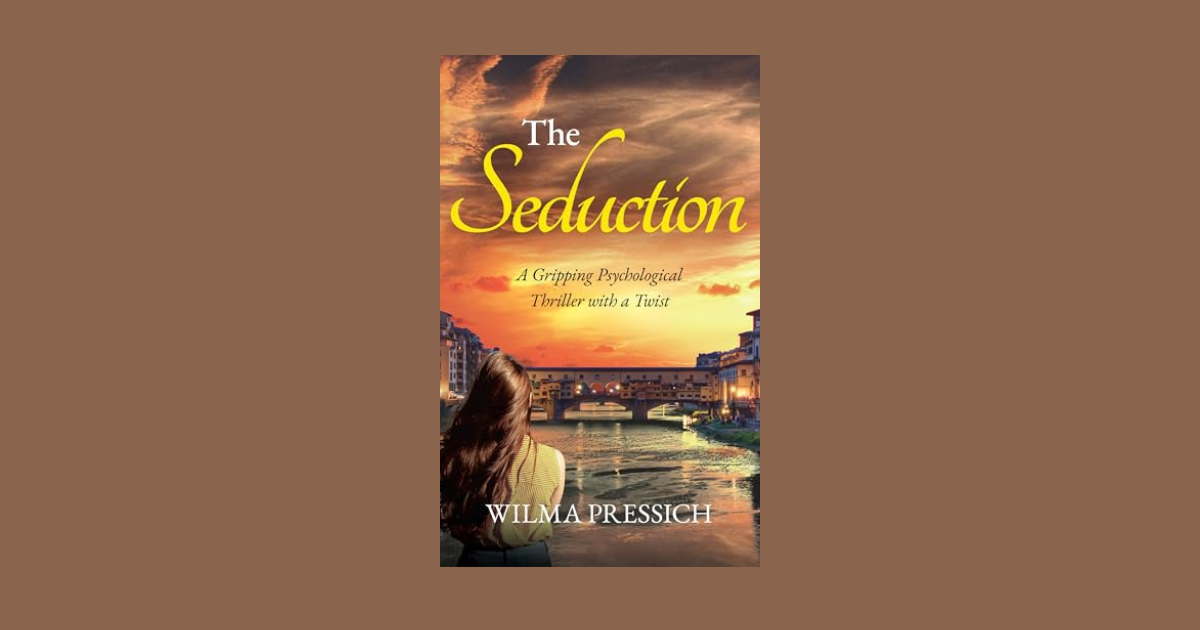What’s the story behind the story? What inspired you to write The Seduction?
The idea for this novel came to me from two sources: a snippet I came across which accredited 33% of the people one came into daily contact with not to be all that well tuned to life, and from my observations which made me believe statistics. The above figure further increases, it seems, when subjects are eradicated from their birthplace, such is the case of Lonia’s mother, a Russian expatriate, hence Lonia the protagonist of my book.
Having lived in a foreign country, Italy in my case, has enabled me to closely observe people of a different social order. And when one becomes part of the choreography, one realizes that the code of behaviour, often judged bizarre or trivial by the foreign onlooker, is merely tribal.
Although the Mediterranean climate is temperate, passions and colours are often tropical. These components determine the quality of space. Not only is there a greater latitude to the terse sky; the air seems denser, language appears at the same time formal and nonsensical. And when people with more than their fair share of adverse psychological legacies get into romantic relationships a tragic-comic blend often ensues.
Of course, mine is not a psychological study of environment but a novel with a delicate erotic component. Humour isn’t missing. Delicately sketched it is far from being trite or commonplace.
The first chapter sees an adolescent Lonia in the throes of a mother who increments statistics; in the second we find her mourning her death. Only then does THE SEDUCTION truly spring to life.
Symphonious characters, such as Witches and Poets, insinuate themselves in the pages of my novel but the overwhelming intensity of my protagonists’ involvement soon pushes them out.
I have adopted a polished literally style and deal with the erotic components with the naivete of Lonia.
If you had to pick theme songs for the main characters of The Seduction, what would they be?
For Rodolfo I would choose “The Devil’s Trill”, composed by the 18th century musician G. Tartini, after having had a dream in which he sold his soul to the devil whom he found sitting at the foot of his bed.
For Lonia, no music surpasses the anaesthetizing quality of Rodolfo’s voice.
And for the emigres, Ivan Rebroff’s Russian folk songs. His four-octave voice well suits the ups and downs of their characters.
What’s your favorite genre to read? Is it the same as your favorite genre to write?
I like the classics and anything dealing with all kinds of novelties and information.
What books are on your TBR pile right now?
“Dreams and Visions” by America’s greatest psychic, Edgar Cayce and “Synchronicity” by Jaworski, a subject which was of great interest to Jung.
What scene in your book was your favorite to write?
I always enjoy writing the finale. It’s a little like orchestrating the culmination of an operatic piece.
Do you have any quirky writing habits? (lucky mugs, cats on laps, etc.)
Jotting down notes at all times of day or night.
Do you have a motto, quote, or philosophy you live by?
One learns from both fools and sages.
If you could choose one thing for readers to remember after reading your book, what would it be?
That not all brains are wired the same way.
Sign up for our email and we’ll send you the best new books in your favorite genres weekly.
Read the original article here



